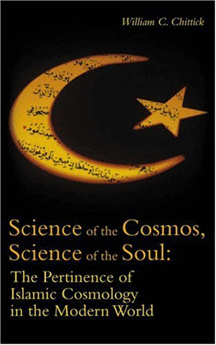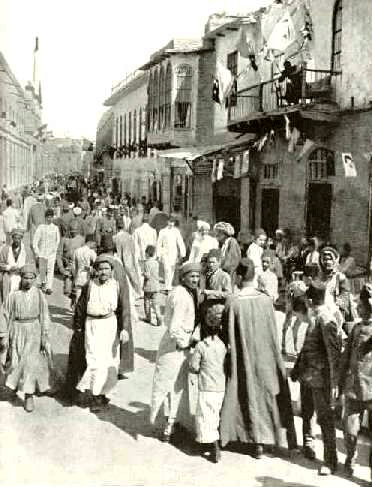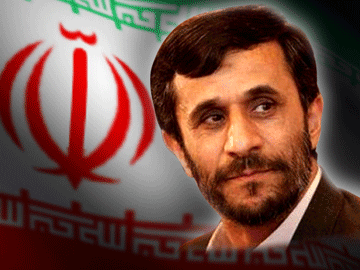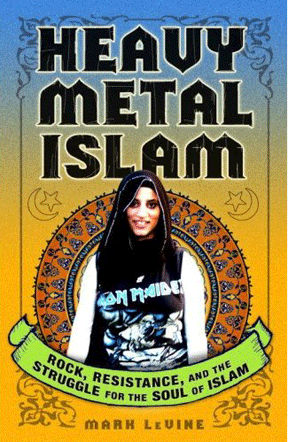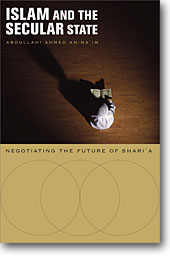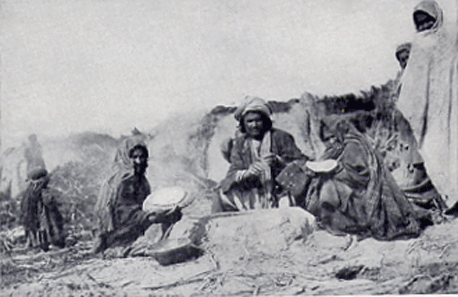
Baking bread in Seyistan on the Afghan Border
[It is hard to find a society in the Middle East without a thriving history of bread preparation. Before the modern loaf and bleached flour assaulted our tastebuds, a variety of flat breads were baked, either in clay overs or other makeshift ovens. Here is a description of both Afghan and Turcoman bread making from a century ago, as reported by Ellsworth Huntington in the National Geographic Magazine in 1909. Webshaykh.]
The method of cooking it was very different from that employed in the oases, where ovens of mud shaped like beehives, with a hole in the top, are heated with a fire of weeds, and the dough is stuck against the inside of the hot oven, where it hangs until it is so far cooked that it falls down into the ashes. The bread of the Afghan caravan was cooked by heating small, round cobblestones in the fire and then poking them out and wrapping dough an inch thick about them. The balls thus formed were again thrown into the fire to be poked out again when cooked. The bread tasted well there in the desert, although in civilized communities the grit and ashes would have seemed unendurable. Continue reading Not your Daily Bread
